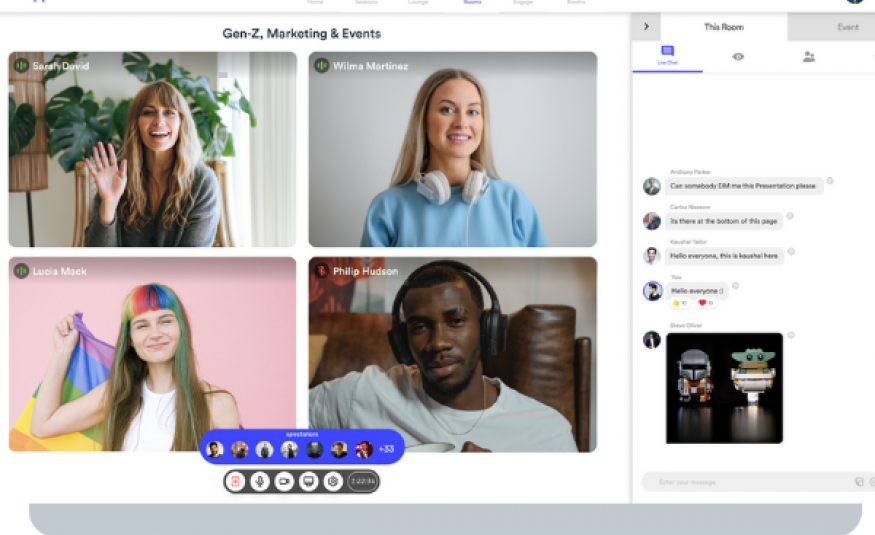The hybrid and virtual event management company Hubilo Technologies reveals its top five trends set to shake up the events industry in 2022.
- The metaverse will change expectations for event experiences
Love it or hate it, the metaverse is already impacting the events landscape and changing audience expectations, particularly among tech-savvy and easily distracted Millennials and Generation Z. To win the time and attention of the future’s dominant workforce, events will be less about chronology and speakers and more about exploration and interaction. The end of a standard webinar is coming near, being replaced with live-streamed VR entertainment and Oculus Rift parties as early as next year.
- Virtual events go mainstream
As the pandemic is not yet over and new variants seem to disturb our come-back to normality, event organisers will steer away from jumping back all in and headfirst to physical events. Having experienced the breadth of benefits that virtual events offer, why would they? More businesses will leverage virtual event tech to create engaging ‘two-way’ gatherings, from movie premieres and fashion shows to investor roadshows and medical conferences.
- Asynchrony is in. Traditional boundaries of time and place are out
Here comes a revolution to event hosting rules. As working models continue to shift and people choose when they want to work, there are no more perfect days and times to host an event. As such, the demand for digital, always-on content and smaller, bite-sized experiences will be on the rise. More businesses will debut their media platforms, allowing employees and customers to network at their convenience and eliminating the need to capture attention for the entirety of an event.
- DIY events will help combat Zoom fatigue
Events have come a long way since the days of the PowerPoint-driven webinar, yet the screen fatigue is all-encompassing. Non-traditional event planners like internal communications and HR departments are being deputised to pull together virtual sales kick-offs and job fairs with zero training, having to meet the same event KPIs as organising pros. Thus, there will be a growing need to develop an ecosystem of expertise and support to help them with technical dry-runs, on-the-day monitoring and post-event analysis to succeed in the DIY event space.
- Social activism will be fuelled by virtual event tech
As Generation Z increasingly occupy the events space, they are also more keen to leverage virtual event tech’s broad reach to build communities with shared interests and values. The data-driven nature of political campaigns is bolstering the claim that social activism has a digital foothold, as it provides an ocean of comments for analysis to hone messaging, persuade the voters and gather extra donations. The coming year will, therefore, see more young people rallying online and more politicians utilising the virtual world to avoid the risk of super-spreader headlines in the press.
Liesl Leary-Perez, vice-president of corporate marketing at Hubilo, says: “2022 is shaping to be an exciting year for the events industry. Hubilo is proud to be a key driver in the future of events, and we will continue to harness our deep expertise to deliver global impact and allow customers to be at the forefront of upcoming trends in the virtual and hybrid events space.”





